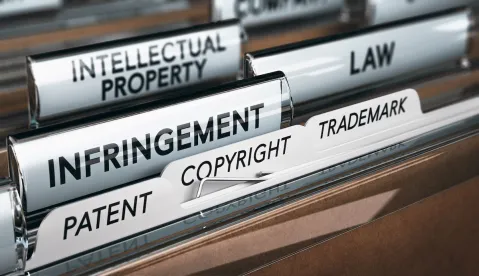Powerful remedies, particularly General Exclusion Orders, are often cited as a reason why patent owners should consider asserting their patents at the U.S. International Trade Commission (ITC) under Section 337 of the Tariff Act of 1930 instead of, or in addition to, in U.S. District Court. A recent Federal Circuit decision reaffirms another advantage of asserting patents at the ITC: the potential for significant civil penalties (i.e., fines) assessed against an infringer who violates an ITC Consent Order.
Background on Consent Orders
A Section 337 Investigation before the ITC may be terminated on the basis of a Consent Order. Termination by a Consent Order is not a determination on the merits of a violation of Section 337, nor is it an admission of infringement. Instead, by accepting a Consent Order, a respondent agrees not to sell for importation, import, or sell after importation the allegedly infringing products in exchange for having the Investigation terminated. Consent Orders can be used in many situations, but often are used when an accused infringer has no desire to continue to import or sell the accused product and wants to avoid the cost of litigation over past conduct that has now ceased. Termination based on a Consent Order is an attractive option because it can be done at any time in the Investigation and without consent of the Complainant.
Consent Orders, however, are not without risk. Consent Orders are written broadly to cover all infringing products of the consenting party, not just the specific products accused of infringement in the Investigation. Thus, if a party’s future product is found to infringe, the importation or sale of such a product will violate the Consent Order. Violation of a Consent Order is a serious offense and Section 337 specifies that any party that violates a Consent Order “shall forfeit and pay to the United States a civil penalty for each day on which an importation of articles, or their sale, occurs in violation of the order of not more than the greater of $100,000 or twice the domestic value of the articles entered or sold on such day in violation of the order.”
The Recent Decision
Recently, in its fourth decision in a patent infringement dispute between DeLorme and BriarTek IP, the U.S. Court of Appeals for the Federal Circuit declined to relieve DeLorme of a civil penalty exceeding $6 million imposed by the ITC for violating a Consent Order, despite the fact that patent claims from which that civil penalty arose were invalidated after DeLorme’s violation of the Consent Order.
In April 2013, the ITC issued a Consent Order barring DeLorme from importing or selling within the U.S. any two-way global satellite communication equipment that infringed BriarTek’s U.S. Patent No. 7,991,380. In May 2013, BriarTek filed an enforcement complaint against DeLorme at the ITC, in which it alleged that DeLorme had continued to import infringing products in violation of the Consent Order. The ITC agreed, and in 2014 slapped DeLorme with a $6,242,500 civil penalty for violating the Consent Order over a 227-day period. While DeLorme appealed the penalty, however, the U.S. District Court for the Eastern District of Virginia invalidated the asserted claims. On appeal, the Federal Circuit affirmed the invalidity decision, but also upheld the ITC’s civil penalty against DeLorme, which accrued prior to the patent being invalidated. DeLorme then petitioned the ITC to rescind or modify the civil penalty, which the ITC denied, and DeLorme appealed to the Federal Circuit, resulting in the present decision.
Other Notable Examples of Civil Penalties
Although civil penalties in the nature of the DeLorme matter are not an everyday occurrence, below are examples where the ITC has imposed other notable civil penalties for violations of its consent orders.
-
Certain Two-Way Global Satellite Communication Devices, System, and Components Thereof, Inv. No. 337-TA-854 (civil penalty of $6,242,500)
-
Certain Dimmable Compact Fluorescent Lamps and Products Containing Same, Inv. No. 337-TA-830 (civil penalty of $10,000 on the inadvertent sale of 20 lightbulbs worth $200)
-
Certain DC-DC Controllers and Products Containing Same, Inv. No. 337-TA-698 (civil penalty of $750,000)
-
Certain Ink Cartridges and Components Thereof, Inv. No. 337-TA-565 (civil penalty of $11,110,000)
-
Certain Neodymium-Iron-Boron Magnets, Magnet Alloys, and Articles Containing Same, Inv. No. 337-TA-372 (civil penalty of $1,550,000)
Takeaways
Patent Owners: When considering whether to assert patents at the ITC and/or U.S. District Court, patent owners should understand and take into consideration the potential for significant civil penalties assessed against an infringer who violates an ITC Consent Order.
Accused Infringers: Although a Consent Order can be an expedient way to resolve a Section 337 Investigation at the ITC, accused infringers must understand the associated risks to avoid significant civil penalties.





 />i
/>i

